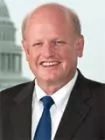Last Friday, January 30, 2009, President Obama signed an Executive Order entitled the "Economy In Government Contracting," which forbids reimbursement of the union-organizing expenses of federal contractors. Specifically, for contracts in which "certain costs are treated as unallowable," the Executive Order instructs federal agencies to treat as "unallowable the costs of any activities undertaken to persuade employees - whether employees of the recipient of the Federal disbursements or of any other entity - to exercise or not to exercise, or concerning the manner of exercising, the right to organize and bargain collectively." Among other things, the Executive Order would bar the reimbursement of expenses related to "holding meetings (including paying the salaries of the attendees at meetings held for this purpose)" about union organizing. The Federal Acquisition Regulatory Council ("FAR") is to promulgate regulations implementing the Executive Order within 150 days.
Jones Day is currently analyzing the Executive Order to assess its consistency with the National Labor Relations Act ("NLRA") and will be monitoring the FAR regulatory process. Last Term before the Supreme Court, Jones Day represented the Chamber of Commerce of the United States and others in their successful challenge to a California statute that barred employers from using state funds to speak to their employees about union-related matters. Justice John Paul Stevens, writing for the Court, reiterated that the NLRA favors "uninhibited, robust, and wide-open debate in labor disputes" and held that the California statute was preempted because it interfered with "the right of employees . . . to receive information opposing unionization." Chamber of Commerce v. Brown, 128 S. Ct. 2408, 2414 (2008) (internal quotation marks and citation omitted). The same NLRA preemption principles that the Court applied in Brown also apply to the Executive Order. In a case before the Court of Appeals for the District of Columbia Circuit, Jones Day successfully argued, again on behalf of the Chamber and others, that an executive order signed by President Clinton that would have debarred federal agencies from contracting with employers that permanently replaced striking employees was inconsistent with the NLRA and therefore invalid. See Chamber of Commerce v. Reich, 74 F.3d 1332 (D.C. Cir. 1996).
In light of Brown, Reich, and other NLRA preemption precedents, Jones Day is carefully analyzing whether the Executive Order is preempted by the NLRA.
The content of this article is intended to provide a general guide to the subject matter. Specialist advice should be sought about your specific circumstances.


